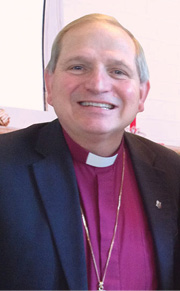
At a recent Clergy and Licensed Lay Workers’ Day the topic of medically assisted dying was considered and discussed.
As a result, the Bishop issued revised guidelines to ensure pastoral care is available to those who inquire about or qualify for and claim the legal right to medical assistance in dying, to their family and loved ones as well as to those who provide them with care.
As people of faith who live and serve in the context of an ever-changing Canadian society, we often face new challenges being the church in the world. In light of decisions of the Supreme Court and Parliament of Canada, many Canadians are exercising their right to access medical assistance in dying.
During the past year, the Niagara Anglican published several articles about medically assisted dying from the legal, personal and pastoral perspectives.
In addition, the Anglican Church of Canada resource In Sure and Certain Hope provides a helpful overview of some of the related theological considerations.
Bishop Michael, as chief pastor of Niagara Diocese, expects that we, as the church in this diocese, will together support all those in pastoral need. In fulfillment of that duty to care, we shall ensure that accompaniment and pastoral presence will be available to all.
It is also expected that, when we venture onto the holy ground of matters of life and death, the consciences of all will be respected. This includes our own. We will, therefore, need to know the outcome of our own discernment and interpretation of scripture, tradition, reason and experience as they bear on this question. We will also need to know in what circumstances we would find it necessary to refer such persons to a ministry colleague who can accompany and be present with those claiming this right. We should proactively prepare for such referrals by making pre-arrangements with another colleague.
As an expression of role clarity and avoidance of potential conflicts of interest, we ought not to serve as witnesses to the signing of consent for the protocol of medical assistance in dying.
We are urged to tend also to our own self-care.
The Bishop welcomes requests for his pastoral support and guidance, and invites us to seek assistance, as needed, from mentors, spiritual directors, regional or diocesan ministry partners and Employee and Family Assistance Plan counsellors, as we exercise pastoral care around these and any other pastoral matters.

Our Treasures and Us: A Time for Reflection